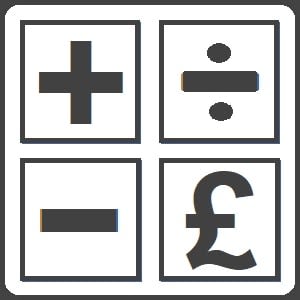What You Really Need to Know About Payments on Account

Just Filed Your First Self Assessment?
As the 2024–2025 tax year closed on 5 April 2025, HMRC has now begun issuing notices to individuals who need to submit a Self Assessment tax return.
This year brought several changes in tax rules — and we’ve noticed many people are filing for the first time. If that’s you: welcome. But also — warning.
It’s Called “Self Assessment” for a Reason
Let’s be very clear: HMRC does not calculate your tax for you. You submit the figures. You assess the tax. If it’s wrong, the consequences are still yours.
It’s entirely possible to make an honest mistake, and HMRC may not spot it until later — when interest, penalties, or a surprise tax demand shows up in your inbox.
This is why understanding a few core concepts from the start is crucial — and one of the most commonly misunderstood is the payment on account.
What Is a Payment on Account?
If you're self-employed or have untaxed income, you’re not just paying for the tax year that just ended — HMRC also expects you to prepay part of next year’s tax.
Let’s say your tax bill for 2023–2024 came out to £3,500. If you hadn’t paid anything toward it already, you’d be expected to pay:
- A balancing payment of £1,500 by 31 January 2025 (the remainder after any prior payments), and
- A first payment on account of £1,750 (half of £3,500) — also due by 31 January 2025
Then, by 31 July 2025, you’ll make a second payment on account of £1,750.
So while you may think your tax bill is just £1,500 — you actually owe £5,000 in total. Many people are caught off guard by this, especially in their first year.
Important Details Most People Miss
- Payments on account don’t cover everything. Capital gains tax, student loan repayments, and some other items are excluded and may be added on top.
- You can request to reduce your payments if you know your income will be lower this year. But if you're wrong, you'll be charged interest on the shortfall.
- HMRC does not remind you about this — and they’re not responsible for making sure you understand it.
Why This Catches First-Timers Out
If you're new to self-employment or just now filing your first return, it’s easy to think that once you’ve calculated and paid your bill, you're done.
But Self Assessment is a forward-looking system. HMRC assumes that, unless told otherwise, next year will look like this year. That’s why payments on account exist.
And if you’re unaware, it can lead to cash flow problems, missed deadlines, or simply paying the wrong amount.
Get Advice from Your Accountant
Don't guess. If this is your first Self Assessment, and you’re unsure whether payments on account apply to you, or how much they might be — speak to an accountant. Elaga Accountancy are well experienced and specialises in all UK tax matters. We are experienced and we put you first in our work. Welcome to contact us for more information and assistance.
Getting it wrong the first time isn’t just stressful — it can be costly. And unlike other systems, you don’t get a “learning year” with HMRC.
Contact us for more details
#PaymentOnAccount #UKTax #SelfAssessment #TaxReturn #PaymentOnAccount #TaxAdvice #HMRC #UKAccounting #FirstTimeTaxFiler #TaxHelp #SmallBusinessUK #FreelancerTax #SoleTraderUK
Contact Us
Send a Message
Get in touch to discuss with us how we can best assist you.
